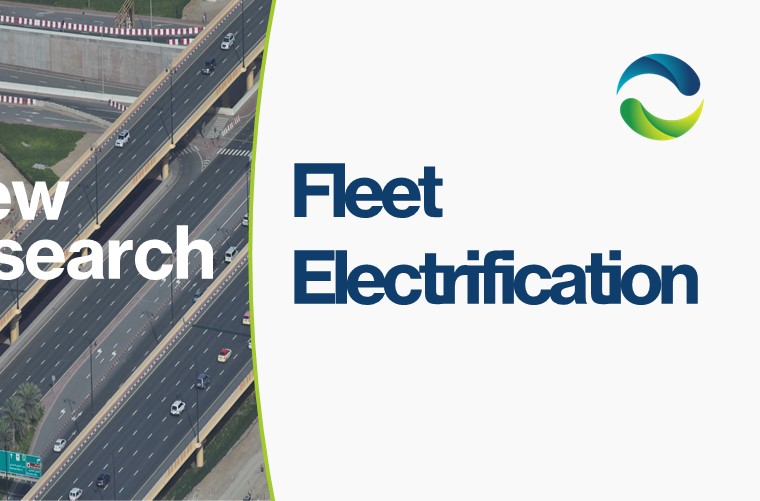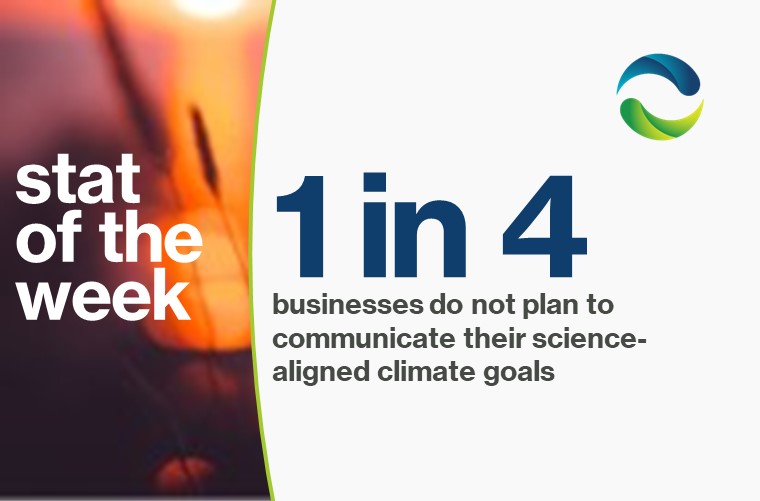As sustainability leaders seek to advance their companies’ climate transitions and as executives face pressure to support these initiatives alongside business growth, both parties must stay informed on new developments that may influence their decisions. The results of COP27 are no exception to these forces.
To many sustainability leaders, the outcome of COP27 is likely unsurprising: a mix of successes and setbacks with an overall sense of uncertainty about the future of climate change and about how much governments will support the energy and economic transitions needed to adapt and mitigate. Key headlines have focused on the new “loss and damage” fund to support vulnerable countries being ravaged by disasters, stagnation in discussions to phase out fossil fuels, and the looming unlikelihood of our ability to limit warming to 1.5°C.
The coverage of COP27 has remained broad. But beyond the main headlines, several overlooked outcomes of COP27 will impact companies more directly. We highlight below six announcements and initiatives from COP27 that executives should know as their companies work to meet internal targets and external expectations.
- Stakeholders to have improved access to climate transition data. The Climate Data Steering Committee (CDSC) announced at COP27 next steps for the Net-Zero Data Public Utility (NZDPU). The NZDPU is an open-data public utility that aims to draw on private sector climate commitments in order to provide centralized, accurate, and verifiable climate transition data. The CDSC—created by French President Emmanuel Macron and UN Special Envoy for Climate Ambition and Solutions Michael R. Bloomberg—called for the utility’s creation in September 2022. Two months later, on November 10, the CDSC outlined challenges and final recommendations, as well as a Request for Proposals to develop a pilot of the utility. The NZDPU will impact businesses by providing stakeholders (e.g., investors and civil society) with metrics that ease their ability to assess companies’ successes and shortfalls in the climate transition, ultimately influencing stakeholder decision-making.
- Businesses are given guidance on ensuring integrity in net-zero commitments. In response to concerns over greenwashing, the UN High-Level Expert Group (HLEG) on the Net-Zero Emissions Commitments of Non-State Entities released the report “Integrity Matters: Net Zero Commitments by Businesses, Financial Institutions, Cities and Regions.” The report includes ten detailed recommendations on how non-state actors can ensure accountable and credible net-zero commitments. Recommendations include publicly sharing net-zero pledges, seeking independent verification of progress, lobbying for positive climate action, and phasing out fossil fuels. This report is an excellent resource for net-zero committed companies and those considering setting their own net-zero targets, as regulators and governments begin examining targets and action plans more closely.
- Global corporations are presented with a new carbon credit proposal. On November 9, U.S. Special Climate Envoy John Kerry announced the Energy Transition Accelerator, a public-private initiative to fund the clean energy transition in developing countries by enabling them to sell carbon credits to global corporations. To address concerns over offset quality, the initiative is only open to companies with science-based targets and 2050 net-zero commitments, and it excludes participation by fossil fuel companies. Furthermore, buyers must use credits as a supplement to—not a substitute for—other commitments. Despite these guardrails, critics remain skeptical of collapsing prices and greenwashing. As the initiative’s details are worked out, companies involved or interested in the carbon credit market should be aware of the new development. Interested sellers and buyers thus far include Chile and Nigeria, as well as Bank of America, Microsoft, PepsiCo, and Standard Chartered Bank, respectively.
- Insurance sector empowered to lead climate risk reduction. On November 10, Race to Resilience introduced the Insurance Adaptation Acceleration Campaign to help scale the global insurance sector’s ability to advance meaningful climate risk reduction and adaptation. The campaign applies five insurance sector capabilities—risk financing and pricing, risk analytics and expertise, impact investment, strategic philanthropy, and stakeholder engagement—to outline how insurers can advance mitigation and adaptation efforts. The goal is to empower the sector to de-risk, finance, and accelerate climate risk reduction, which in turn impacts stakeholders through changes such as portfolio diversification and demand for data availability.
- Consumer industries offered practical solutions for decarbonization. Launched by the Consumer Goods Forum, the Net Zero Playbook for Consumer Industries presents a set of practical solutions on how consumer companies can address challenges to decarbonization. The Playbook highlights interventions and case studies on supplier enablement, sustainable agriculture, consumer use, plastics and packaging, and transport and logistics. It answers common questions companies may have such as where to start, what technologies to use, and how to engage in pre-competitive, collective action.
- Private sector to accelerate zero-emission passenger vehicle deployment. The U.S. announced the Zero Emission Vehicles Emerging Market Campaign (ZEV-EM-C) to advance the deployment of zero-emission passenger vehicles. Launched at COP27, the one-year initiative will emphasize private sector participation by encouraging private sector contributions and promoting dialogue between key companies and emerging markets. Further details have not yet been released, so companies looking to electrify their fleets should keep an eye out for future announcements.
COP27 sends a clear message that more work remains on the global and national scales to meet climate goals—yet the role of and impact on businesses is often unclear in this arena. Amidst the key headlines covering global climate progress (or lack thereof), it is important to cut through the noise and understand what developments will impact businesses throughout their sustainability journeys. The initiatives highlighted are just a few of the outcomes of COP27 that executives and sustainability leaders should be aware of in order to respond to stakeholder pressures and take advantage of resources and solutions. The impacts will continue to cascade down to the company level as countries take regulatory action to meet global and regional agreements and expectations.




